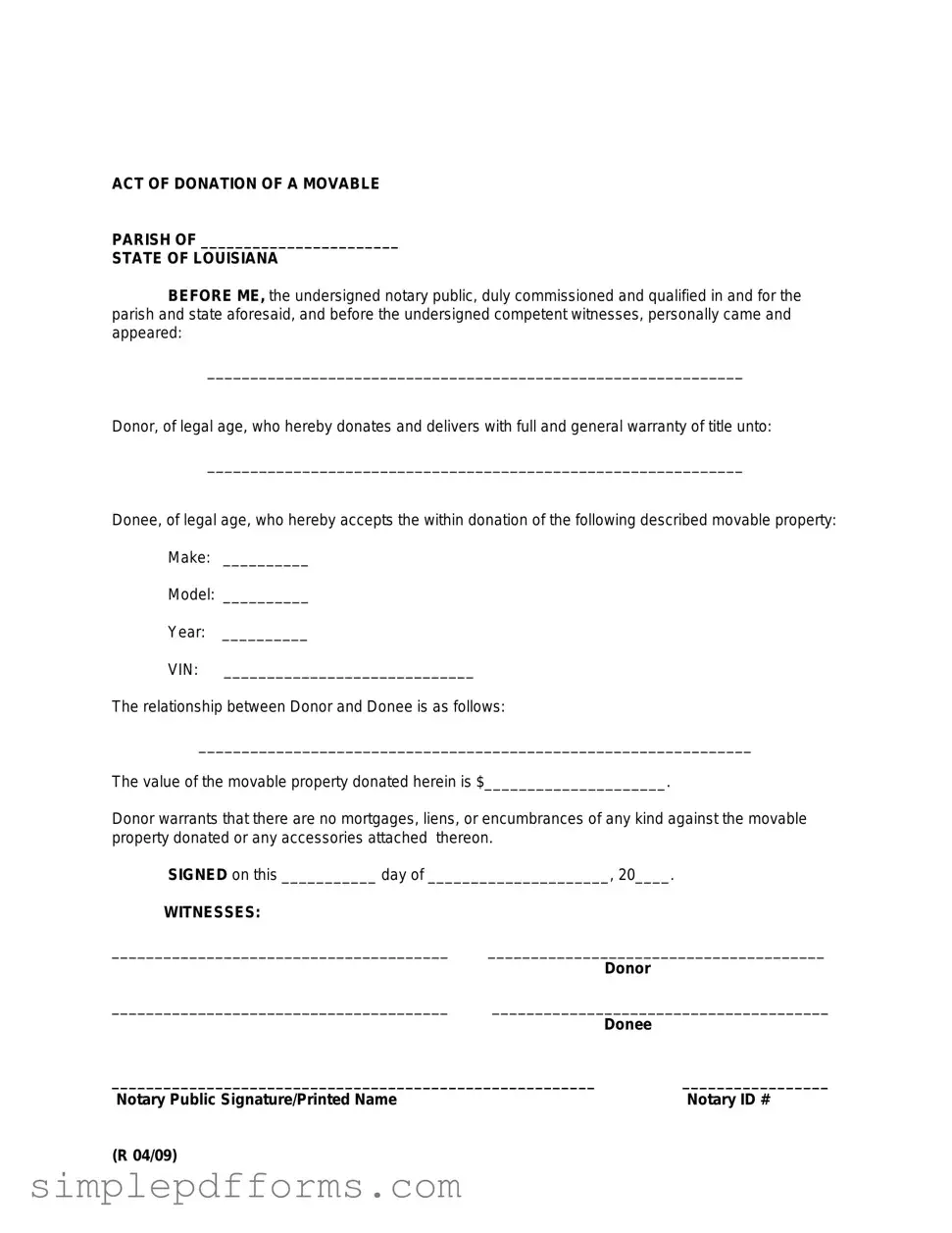Fill a Valid Louisiana act of donation Form
The Louisiana act of donation form is a legal document used to transfer ownership of property from one person to another without any compensation. This form ensures that the donation is recognized and legally binding under Louisiana law. Understanding its components and requirements is essential for anyone considering making a gift of property.
Open Louisiana act of donation Editor Now

Fill a Valid Louisiana act of donation Form
Open Louisiana act of donation Editor Now

Open Louisiana act of donation Editor Now
or
Get Louisiana act of donation PDF Form
Your form is waiting for completion
Complete Louisiana act of donation online in minutes with ease.